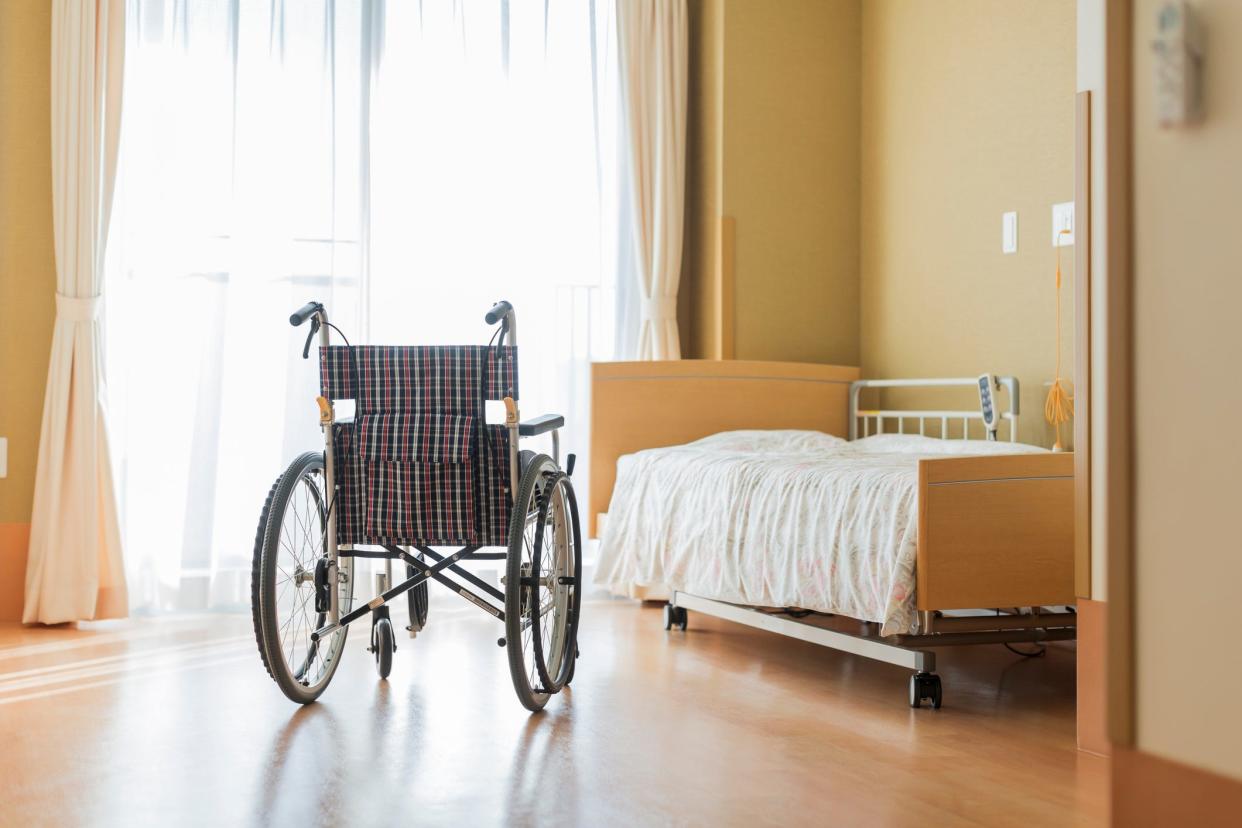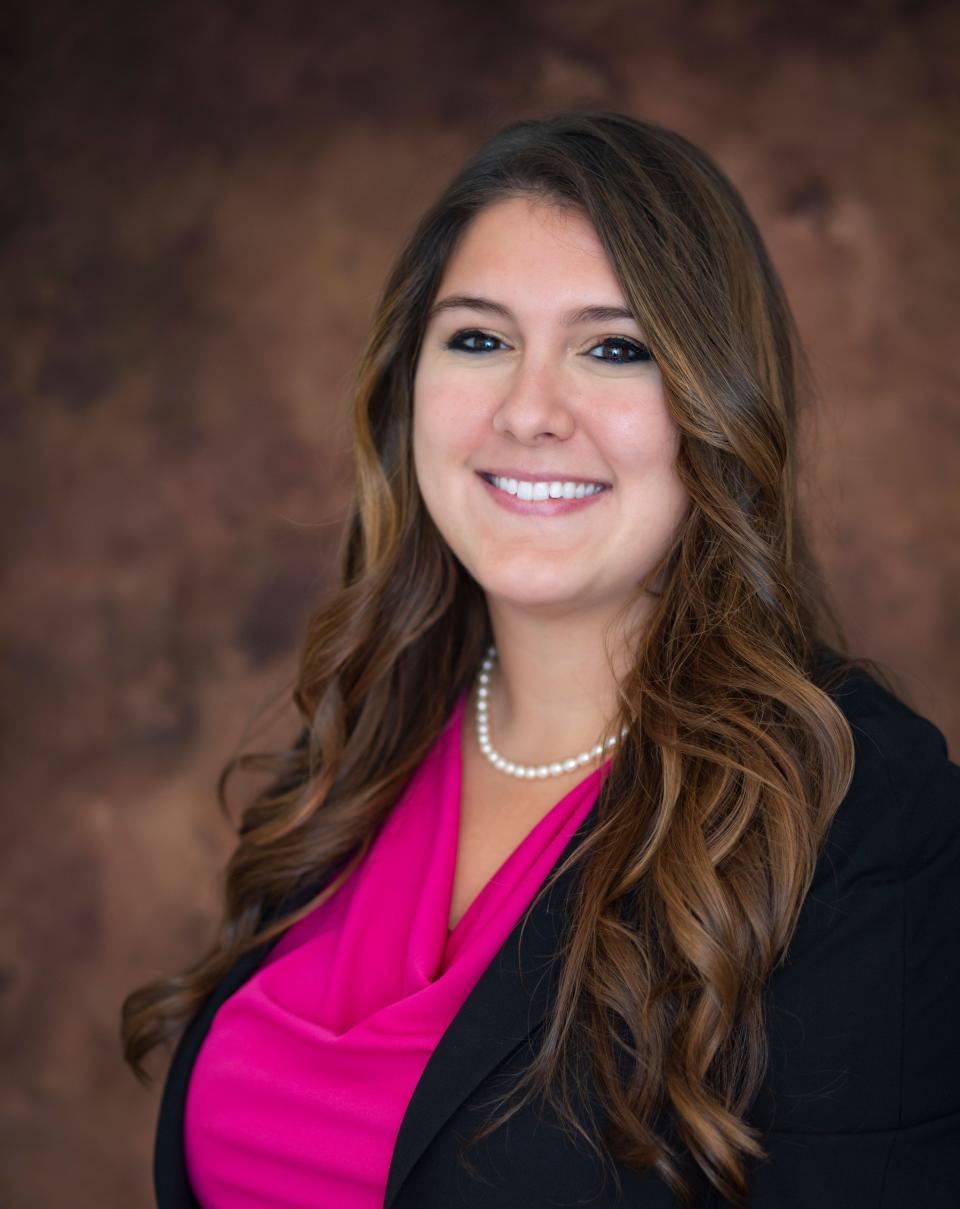Confused about Medicaid for seniors? An elder law attorney debunks common myths

This is part two of a series sharing what you need to know about Medicaid and seniors.
If you missed last week’s column, which included some common myths and facts on the basics of Medicaid for seniors from Direction Home, a nonprofit agency that helps older adults find programs to age at home or in long-term care facilities, go to www.tinyurl.com/bettylinfisher
This week, my expert is Jaclyn Palumbo, a probate attorney and chair of the Akron Bar Association’s Estate Planning, Probate and Elder Law Section. She is an attorney at Palumbo & Sweet LLC in Fairlawn.
The Akron Bar Association has an attorney referral service at https://www.akronbar.org or by phone at 330-253-5038.
Here are some common myths and facts about Medicaid, senior care and estate planning.
MYTH: Spenddown means all of my money has to go to the nursing home before my spouse or my loved one can get care.
FACT: This is one of the biggest myths. Never try and do a “spenddown” on your own or at the advice of a nursing home or financial adviser. In many cases, elder law attorneys can save half, if not all, of the assets for your spouse or your loved ones.
MYTH: My spouse just went into the nursing home and now I know I’ll go bankrupt.
FACT: There are so many protections for spouses that you should not be disheartened. There are emergency Medicaid plans that elder law attorneys can implement to prevent financial ruin.

MYTH: My mom or dad gifted money and now I know they won’t qualify for Medicaid, so I’m not even going to call an attorney for help.
FACT: Just because gifting has occurred doesn’t mean someone won’t qualify for Medicaid. However, it’s definitely good to reach out to see the consequences of past gifts, or if you are planning to do gifting now, you can seek an attorney’s advice.

MYTH: Financial powers of attorney aren’t that helpful, anyway.
FACT: Financial POAs are extremely helpful. They may be one of the most important planning documents. They can even prevent a guardianship from being filed against your loved one. Beware of doing this by yourself on the internet. There are many types of financial POAs and you want to make sure you get the right one.
MYTH: Financial POAs take away the independence of the individual.
FACT: POAs are a great tool to work in conjunction with someone as their needs increase. It is more of a teamwork document.
MYTH: If I sign my name first for my mom followed by “POA” that protects my personal finances.
FACT: False. To appropriately sign as Agent, (if your mom is Betty White and you are Susie), it would look like this: Betty White by Susie Thomas, Agent. “Betty White” would be in cursive, and the rest would be in print.
MYTH: The nursing home said they will complete my Medicaid application for my loved one for free so I’m not going to pay attention to it.
FACT: Please don’t do this! Nursing homes may offer their business office to do the application, but that does not mean it will be done correctly, and it is a lot more expensive to fix a botched application than to do it right from the start.
Healthy Actions: Know how to spot a stroke: BE FAST is the new acronym
MYTH: I don’t need a will because I don’t have a lot.
FACT: Whether or not you need a will is based on many factors, and if you don’t want one, you should still seek help from an estate planning or elder law attorney for nonprobate protection. Each case is individual, and even if you think you don’t “have much,” not planning can create horrible heartache and financial pain for a family.
MYTH: A safe deposit box is the safest place to keep my documents.
FACT: Safe deposit boxes may have had their place many years ago (and in some rare circumstances, may have a purpose now), but we typically advise clients to keep their documents in a safe location like a fireproof safe or box at home. Next, tell your loved ones where your documents are located so they are easily accessible. Safe deposit boxes that are inaccessible can create a situation that needs to go through probate court, which is what you're trying to prevent.
MYTH: I have to wait until my loved one is completely incapacitated to get control of their affairs.
FACT: A power of attorney can help your loved one and you manage their health and their assets in the event of a complete mental decline. Always seeing an attorney at the onset of a condition like Alzheimer’s is better than waiting too long.
Healthy Actions: Oh my aching back! Tips from a spine surgeon
MYTH: My loved one just died. I’m going to stay on top of their bills and keep paying them.
FACT: In Ohio, creditors are barred from filing claims against an estate six months after the date of the death of a loved one. Stop paying the deceased loved one’s bills (unless you co-signed and are responsible for the debt) and seek out an attorney before paying anything else. Don’t notify creditors of your loved one’s passing — that can complicate the situation. Just hang up on them and talk to an attorney. There are ways around paying those bills, including to just to pay a minimum amount on the bill, or negotiate the amount down. But don’t do this without the advice of an attorney as every circumstance is different.
MYTH: I can read contracts from nursing home or assisted-living facilities myself. It doesn’t seem that hard.
FACT: There are many pitfalls hidden in nursing home contracts that can get barbs into your personal finances. Never sign documentation without an attorney reviewing it. In the case of an elderly person falling and getting hospitalized, typically their Medicare will cover the first 20 days of their stay, so you have time to seek legal counsel.
MYTH: I have to sign personally on documentation for my spouse, or they won’t admit him.
FACT: This is not true. Don’t sign personally on your spouse’s documents. Your spouse will still receive medical treatment. People at the hospital might be cold to you if you don’t sign their documents and “make their life harder,” but don’t sign anything.
Beacon Journal consumer columnist and medical reporter Betty Lin-Fisher can be reached at 330-996-3724 or blinfisher@thebeaconjournal.com. Follow @blinfisherABJ on Twitter or www.facebook.com/BettyLinFisherABJ To see her most recent stories and columns, go to www.tinyurl.com/bettylinfisher
This article originally appeared on Akron Beacon Journal: Confused about Medicaid for seniors? Elder law attorney debunks myths

